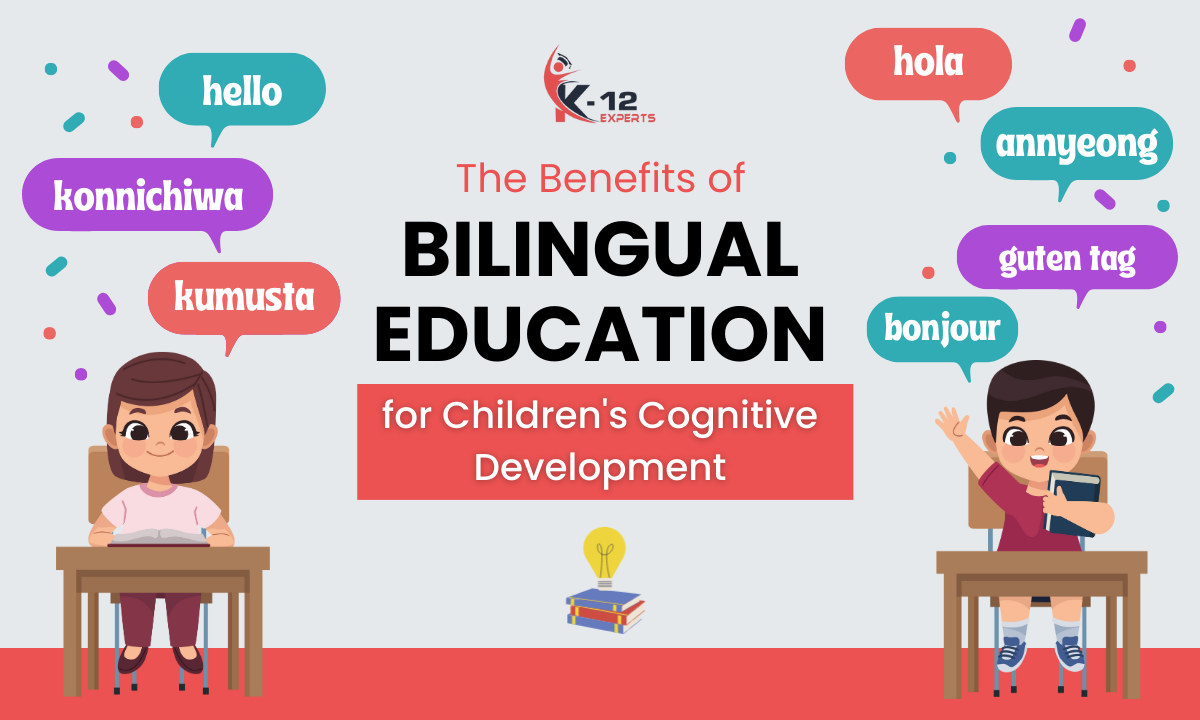Are you aware of how bilingual education can significantly enhance a child’s brain structure?
When children learn two languages, they aren’t just learning to speak another language. They are also improving their ability to switch between tasks and solve problems in unique ways.
These cognitive skills develop early and can greatly impact their education and future career choices.
In a world that’s more connected than ever, these skills could be crucial for your child’s success.
What might this mean for their future opportunities?
Key Takeaways
- Learning two languages can make solving problems easier because it helps kids think more flexibly and creatively.
- When children learn to juggle two languages, they get better at switching between different tasks quickly and without much effort.
- Getting to know more than one language can help improve memory. This is because it builds stronger pathways in the brain.
- Knowing multiple languages helps children pay better attention. They become better at ignoring distractions and focusing on tasks.
- Learning about different languages also teaches children about various cultures. This helps them understand and connect with people from around the world.
Enhancing Problem-Solving Skills
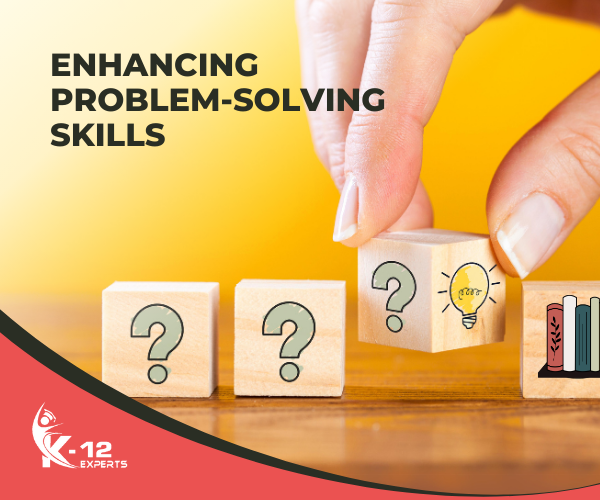
Bilingual education significantly improves children’s problem-solving abilities by increasing cognitive flexibility. When children learn two languages, their brains adapt to different language structures. This skill enhances their capacity to process information and solve problems more effectively.
Research shows that bilingual children perform better than their monolingual peers in tasks that require creative thinking and pattern recognition. They’re also more skilled at overlooking unnecessary information, which is crucial in solving problems efficiently.
This skill isn’t limited to academic situations but is also valuable in everyday life, where quick and accurate problem-solving is essential. Bilingualism provides children with the tools they need to approach challenges creatively and effectively, which is a key aspect of cognitive development.
Improving Multitasking Abilities
Learning multiple languages can significantly improve your multitasking skills. Research shows that people who speak more than one language are better at quickly switching between different tasks than those who speak only one.
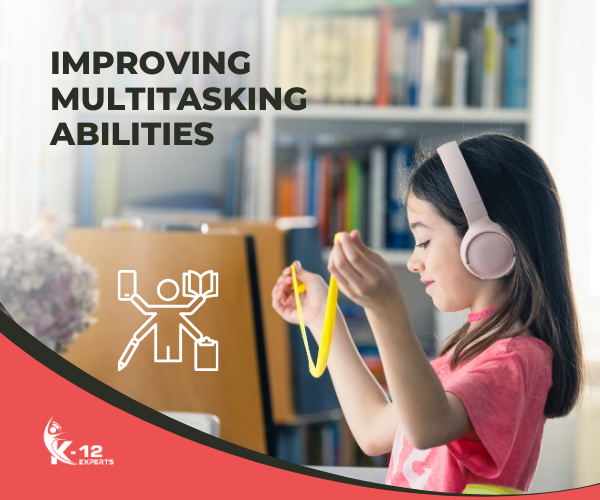
This skill comes from the brain’s ability to handle more than one language system, which helps you manage various tasks more smoothly. Regular practice of this skill not just enhances language abilities but also prepares your brain to tackle multiple challenges at the same time.
This ability is crucial in today’s fast-moving world, as juggling various tasks successfully can boost your school and work performance. Therefore, learning additional languages is a practical way to enhance your multitasking skills and succeed in busy settings.
Boosting Creative Thinking
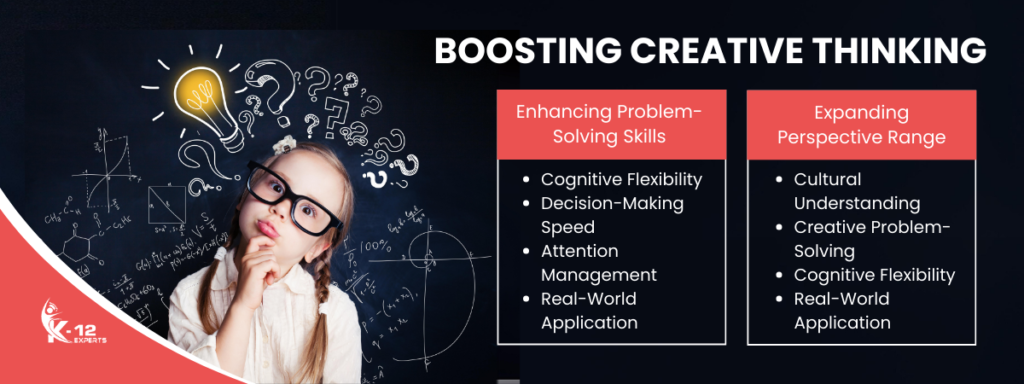
Bilingual education not only increases a child’s vocabulary but also significantly improves problem-solving skills.
Learning two languages gives children the ability to approach challenges from different perspectives, enhancing their creativity and enabling them to come up with unique ideas and solutions, essential for various brain tasks, such as math problem-solving.
Enhancing Problem-Solving Skills
Being bilingual can boost problem-solving skills by expanding the ways a child thinks and sharpening decision-making abilities.
Here’s a simple breakdown of how learning languages affects problem-solving:
| Aspect | Impact on Problem Solving |
| Cognitive Flexibility | Increases ability to tackle new challenges |
| Decision-making | Speeds up the process of selecting solutions |
| Attention Management | Improves concentration in distracting settings |
For instance, a bilingual child quickly switches between languages, making their brain more adaptable and efficient at assessing situations, similar to how a soccer player quickly decides the best play.
Expanding Perspective Range
Children who grow up bilingual often develop a broader perspective, enhancing their creative thinking. Learning multiple languages goes beyond vocabulary—it involves understanding diverse cultural narratives and viewpoints, which fosters unique problem-solving abilities. Research shows that bilingual individuals excel in creative tasks requiring multiple solutions. This linguistic diversity also strengthens cultural awareness, promotes independence, and increases cognitive flexibility. Bilingual education thus equips children to engage with the world creatively and navigate complex challenges.
For instance, a child fluent in both Spanish and English can draw from both cultures, offering innovative insights in collaborative settings. Bilingualism not only broadens communication but also sparks creative thinking.
Strengthening Memory Retention
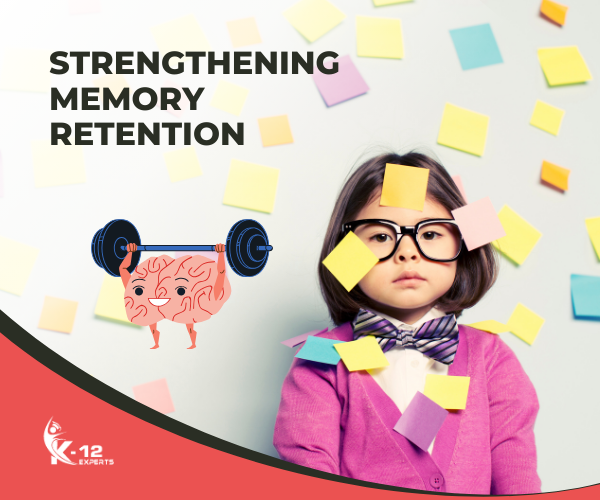
Bilingual education enhances children’s memory retention. Learning and switching between two languages stimulates brain areas responsible for memory, leading to improved recall abilities. This mental exercise strengthens memory connections, which is essential for academic success and lifelong learning.
Research shows that bilingual children excel in remembering information, even in distracting environments, demonstrating more flexible and robust memory skills. By choosing bilingual education, you’re equipping your child with the tools to thrive in a dynamic world.
For example, a bilingual child may find it easier to recall a grocery list in a noisy supermarket, thanks to the memory training gained from managing two languages—an invaluable real-world skill.
Sharpening Attention Control
Bilingualism significantly enhances a child’s ability to focus and manage attention, vital skills for academic success and daily life. Learning two languages trains the brain to handle multiple tasks simultaneously, improving concentration and the ability to switch between activities with ease.
| Aspect | Monolingual | Bilingual |
| Task Switching | Slower | Faster |
| Distraction Resistance | Lower | Higher |
| Concentration Span | Shorter | Longer |
| Error Detection | Less Accurate | More Accurate |
| Cognitive Flexibility | Limited | Enhanced |
As the table illustrates, bilingual children generally outperform their monolingual peers in attention control, developing a more versatile and flexible mind.
Advancing Academic Performance
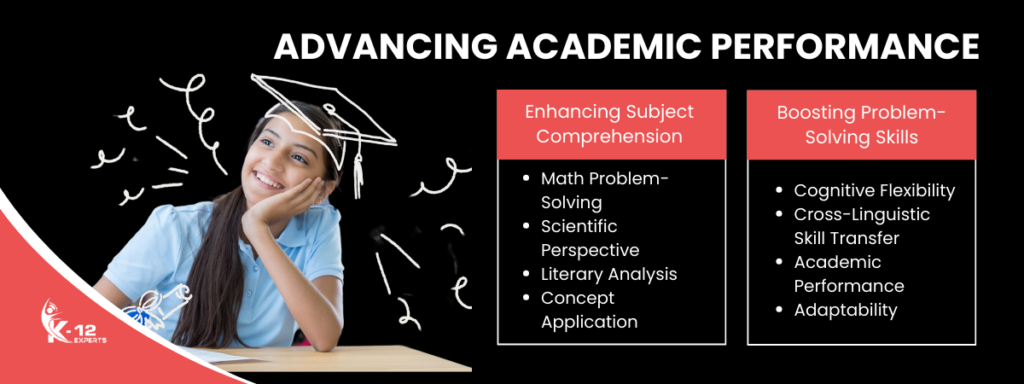
Bilingual education goes beyond language proficiency; it significantly boosts academic achievement. Research indicates that students fluent in multiple languages tend to excel across various subjects.
This success is attributed to increased cognitive flexibility gained through learning different languages, which enhances problem-solving skills and creative thinking. For instance, a bilingual student may approach mathematical problems from diverse angles or grasp complex scientific concepts more easily, resulting in superior academic performance.
Enhancing Subject Comprehension
Bilingual education boosts comprehension across subjects, improving academic performance. Learning in two languages expands vocabulary and perspectives, aiding retention and understanding.
Let’s explore how bilingualism aids comprehension in several key areas:
| Subject | Impact of Bilingual Education |
| Math | Improves the ability to identify problems and apply various strategies to solve them. |
| Science | Enhances the testing of theories by considering different perspectives. |
| Literature | Deepens empathy and analysis in reading. |
This broader perspective helps students grasp complex concepts and apply them effectively.
Boosting Problem-Solving Skills
Bilingual education enhances children’s problem-solving abilities by fostering cognitive flexibility. Regularly switching between languages strengthens the brain’s executive functions, crucial for planning, decision-making, and tackling complex tasks.
For instance, a child fluent in both English and Spanish might apply organizational skills from one language to solve a math problem in the other. This cross-linguistic skill transfer boosts creativity and the ability to find unique solutions, leading to better performance across all subjects.
The adaptability gained from navigating two languages also helps students handle unexpected challenges, making them more resourceful in both academic and everyday situations.
Cultivating Cultural Awareness
Bilingual education not only enhances cognitive abilities but also fosters an appreciation for diverse cultures. Learning a new language involves understanding the traditions and beliefs that shape communication, leading to greater empathy and open-mindedness.
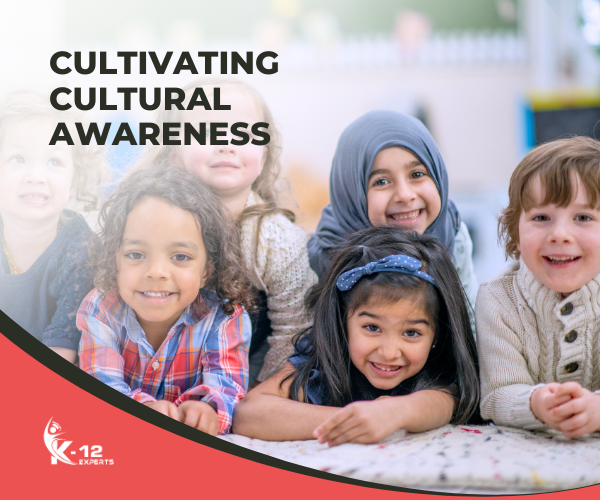
Research shows that bilingual children develop a more inclusive worldview, learning to celebrate diversity rather than fear it. This cultural awareness helps avoid biases and embrace different perspectives, a crucial skill in today’s interconnected world, promoting a community that honors all cultures.
Preparing for Global Opportunities
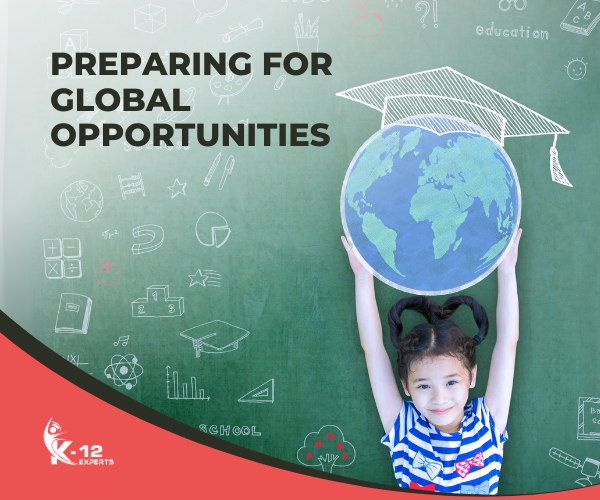
Learning multiple languages and understanding diverse cultures significantly enhances your global career and academic prospects. Research shows that bilingual individuals adapt more easily and think creatively, skills highly valued in the global job market, especially in roles requiring innovation and collaboration within diverse teams.
Fluency in multiple languages also opens doors to prestigious educational opportunities abroad, connecting you with top universities and a global network of scholars and professionals. This network is invaluable for building a successful international career.
Conclusion
Bilingual education offers profound benefits for cognitive development, enhancing your brain’s ability to manage complex tasks, improve problem-solving skills, and multitask effectively. It also boosts creativity and strengthens memory retention.
Beyond academics, bilingual education cultivates a deep understanding of diverse cultures, equipping you for global opportunities. In our interconnected world, multilingual communication is an invaluable skill.
Choosing bilingual education sets the stage for personal and professional growth, sharpening cognitive abilities and enriching cultural perspectives, preparing you to confidently navigate global challenges.

